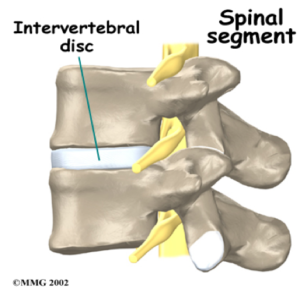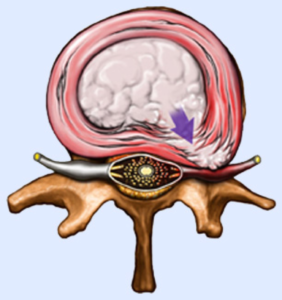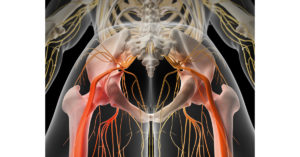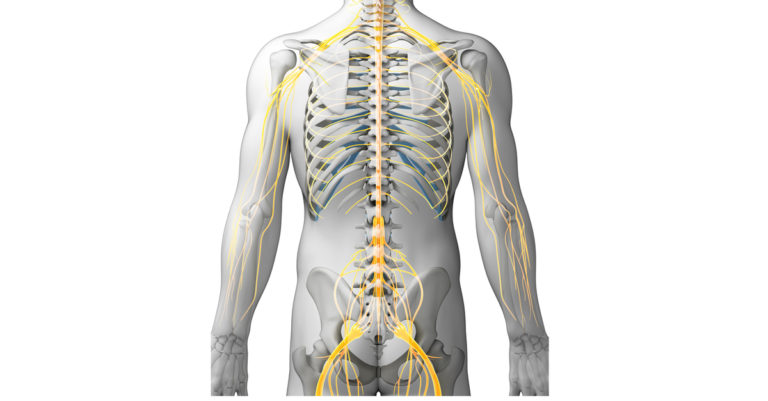Neck and back pain aren't the only symptoms of a herniated disc. In fact, for many patients, symptoms first present in the extremities. Because of this, it's important to know the relationship between a herniated disc and extremity nerve function. Let's jump right in:
Related Anatomy
The intervertebral discs of the spine are made up of an outer ring of cartilage and an inner gel-like substance.

Intervertebral disc lie between adjacent vertebrae
The discs help with support and movement by acting as "shock absorbers". A herniated or ruptured disc occurs when the nucleus protrudes through the outer ring of cartilage—placing pressure on the spinal cord/nerves.

A herniated disc pinches the nerve
Because the spinal nerves branch out to innervate the extremities, patients can experience a variety of unpleasant symptoms that seem to be coming from the extremities.
Extremity Related Symptoms of a Herniated Lumbar Disc
The lumbar vertebrae are those found in the lower back. When a lumbar disc herniates, a common symptom is usually a sharp, shooting pain that starts in the buttocks and runs down the back of the leg. Commonly known as "Sciatica", this type of pain can be aggravating, even debilitating.
This pain is due to the herniated disc compressing the sciatic nerve, which then sends pain signals through the entire nerve, which extends from the lower back through the legs… Other associated symptoms often include tingling, numbness and weakness in the leg.

The sciatic nerve runs down the lower back, buttocks, and back of the leg. A herniated lumbar disc can pinch the sciatic nerve and cause sciatica.
Extremity Related Symptoms of a Herniated Cervical Disc
The cervical, or neck, vertebral discs herniate less often than those in the lumbar region. However, symptoms are not less severe. A herniated cervical disc can cause pain, weakness, numbness, and tingling in the neck, shoulder, arm, and/or hand, which is referred to as “radiculopathy”. Similar to Sciatica, this is caused by the herniated portion of the disc compressing a nerve that transmits impulses to the shoulders, arms or hands.
Because these body parts are used throughout daily activities, a herniated cervical disc can decrease quality of life and ability to function.
Treating Herniated Discs
If you can relate to the information in this post or are experiencing any of the above-mentioned symptoms, please contact our offices in Agoura Hills, Palmdale or Valencia to arrange an appointment with Neurosurgeon and Spine Expert, Dr. Anthony Virella.





